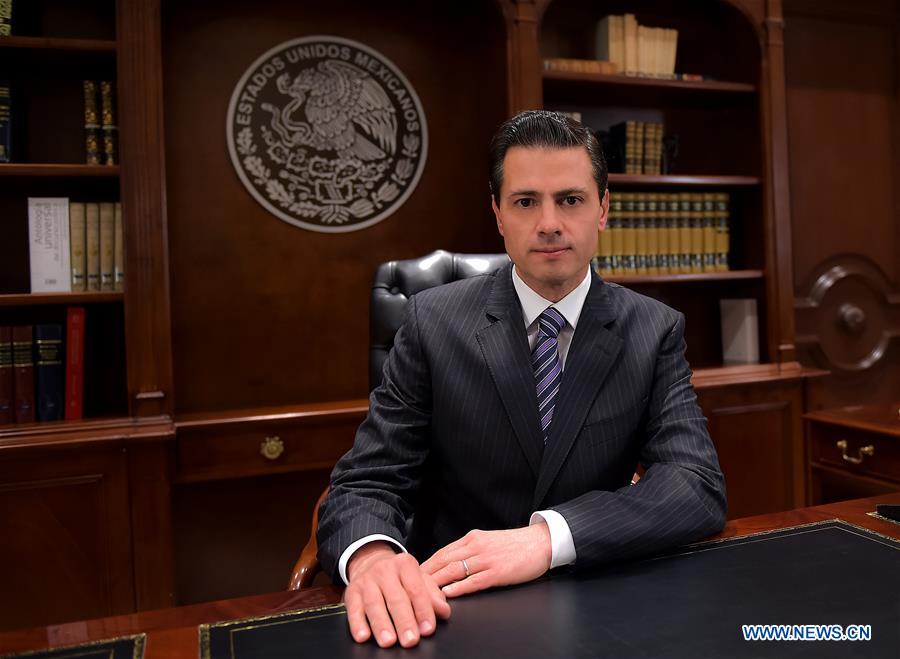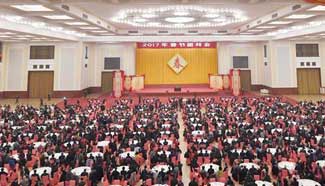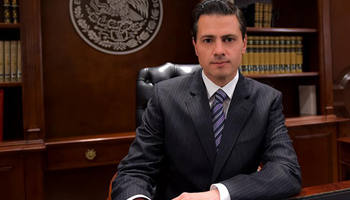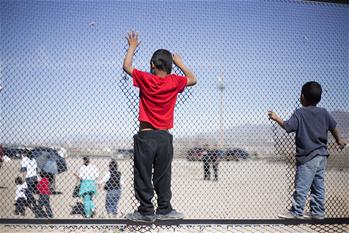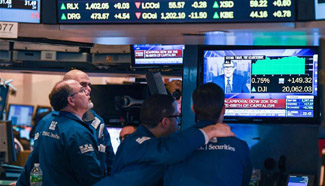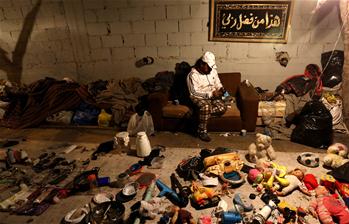Image provided by Mexico's Presidency shows Mexican President Enrique Pena Nieto preparing to deliver a speech in Mexico City, capital of Mexico, on Jan. 25, 2017. Mexican President Enrique Pena Nieto said Wednesday that his country rejects the U.S. decision to build a border wall and "will not pay for any wall." (Xinhua/Mexico's Presidency)
MEXICO CITY, Jan. 25 (Xinhua) -- Building a wall along the U.S.-Mexico border is a costly measure that will not solve the problems of illegal migration or drug trafficking, said experts.
U.S. President Donald Trump on Wednesday signed an executive order to "build a large physical barrier on the southern border," which he expects to stop the illegal migration and drug trafficking from Mexico.
The wall will, however, raise tensions between the two neighboring countries instead of solving the issues, especially with Trump threatening to make Mexico pay for a project which estimates say will require about 10 to 25 billion U.S. dollars.
"It is a solution proposed by a handful of ignorant people," said Alejandro Hope, a Mexican analyst of security matters.
Some "60 percent of illegal migrants enter the United States with a visa," and then overstay their welcome, he said.
The measure seems even more misguided given the fact that Mexican northward migration has decreased due to the recession in the United States, said Hope.
Today, most migrants crossing the border come from Central America, and the best way to curb their numbers would be to boost cooperation with Mexico, the transit route, not to antagonize it, he said.
Expecting the wall to put a stop to drug trafficking also shows a complete lack of understanding of the dynamics of smuggling and current consumption patterns in the United States, he said.
Cocaine use has plummeted by half in the 2000s, while domestic marijuana production has increased, said Hope.
"All of the heroine consumed in the United States in a year fits inside 2,000 suitcases. Only seven suitcases a day need to get through (border inspection points) to supply all the heroine needed," Hope said, indicating a wall will not impede the flow.
Raul Benitez Manaut, from the Center for Research on North America at the National Autonomous University of Mexico, said forcing Mexico to foot the bill for the wall is likely to generate more hostility than the wall itself.
"That would definitely create a huge conflict between the two governments," warned Benitez, a specialist in bilateral ties.
The price tag will probably run into tens of billions because the wall will likely be fitted with high-tech security features, such as sound and heat detectors, video surveillance cameras and drones, he said.
Trump signed the order on the same day when Mexico's ministers of finance and economy were to meet with U.S. officials on trade, security and migration, he noted.
"He signed it today so he doesn't have to negotiate it with Mexico's negotiating team. The only thing left for the Mexican negotiators (to discuss) is who will pay for the wall, because Trump says Mexicans are going to pay for it," said Benitez.
Trump has suggested levying a border tax as a way to finance the wall.
